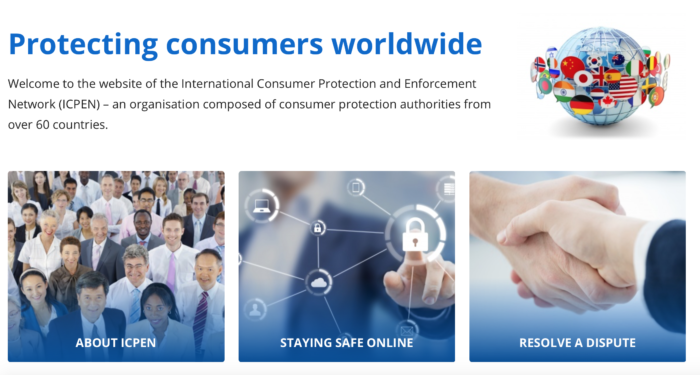When you’re dealing with online reputation management, you’ll need to keep an eye out for all the potential problems that can negatively affect your brand. There are so many things that can go wrong when dealing with an online reputation. These 9 keys will keep you on the right track and make sure that you’re as effective as possible.
9 Keys to Online Reputation Management
It’s ironic that the online reputation management business has an online reputation problem but that seems to be the case. These 9 keys are essential for keeping your online reputation management business spotless.
Don’t let yourself get distracted with all of the different strategies you can use to help your client before you’ve been able to outline these 9 keys. They can make all the difference in your brand’s image and can have a huge impact on whether or not you end up in court because of failure to follow the law or to secure results.
Additionally, it is important to remember that people will be talking about you. They’ll talk about the brand you’re working with and they’ll talk about your own brand. It isn’t realistic to think that people aren’t talking. So keep that in mind with the reactions that you give and the comments that you make. A little extra thought can make all the difference.
Follow these 9 online reputation management keys. It will not only help your clients but also your brand.
Online Reputation Management Key #1: Your Ethics Are Important
When you’re a reputation manager, it’s possible that you’ll have issues that may cross legal or ethical lines. You’ll thus have a fundamental choice to make: whether you’ll accept or reject your clients based on your ethical concerns.
When deciding on your mandate, be sure to learn as much as you can about your clients and their motivations. Being well informed will make this process easier and may determine just how closely their ethics line up with yours outside of the gossip that you may have heard.
Online Reputation Management Key #2: Your Client Can’t Test Your Legal Boundaries
When dealing with clients from other countries, you need to be aware of what their rules are. Don’t let your customers think that you can get around the FTC rules just because you aren’t located in the US, or vice versa.
This is important to remember because you could be liable for any breach of legal boundaries. For example, the FTC are rules regarding fake reviews and are most often the cause of reputation management agencies. The FTC works with the ICPEN. Together they work to reflect the basic truth-in-advertising principles your clients need.

Online Reputation Management Key #3: Know the Correct Way to Ask For Reviews
The endorsements that you receive must be truthful and cannot be misleading. Additionally, you can’t have a material connection between the person or company endorsing you and the product or service they’re endorsing.
Authorities are interested in the fair collection of reviews, transparency, and the moderation of reviews. As such, you should only help clients that allow you to engage in conversation with their actual clients.
Keep in mind that this will not work if you are dealing with a situation where there is a HIPAA compliance issue. However, you can still get fair reviews that are still legal from e-commerce firms and service providers.
SEE ALSO: Monitor Your Digital Brand
Online Reputation Management Key #4: Keep Your Timelines Realistic
When your client wants you to do suppression work, that is suppressing negative online information in search engine results, you need to keep a realistic timeline.
Doing suppression work can be difficult, and you should be wary of taking on clients if their negative search results have been spreading over more than six months. It will take a massive amount of time to suppress something that negative with something more positive. If your client didn’t get in touch with you right away, you might have to think twice about working with them.
Online Reputation Management Key #5: Invest in Content
No matter what else you do, your campaign work will need to stand on its own. When you’re suppressing negative content with positive content, you need to make sure that it’s still good content.
Your readers should still want to read your content. They should still want to engage in your content, write comments, link it to their blogs, and email it to your friends.
Additionally, you can also consider adding video to your campaign. Adding a great video can really enhance your reputation.
Online Reputation Management Key #6: Understand Your Return
Many people will search you out to find out how quickly they can get their negative stories buried in the far-out pages of Google. However, they may not come back for your actual service once they get your quotes.
People often have higher expectations of what they want, but they don’t usually know the basic statistics.
Giving your clients a realistic expectation of what they should expect will usually resolve any out of reach ideas they might have. In reputation management, you need to understand the initial drop and the low return that will happen when trying to suppress into the 10th page of Google.
Online Reputation Management Key #7: Knowing How to Link-Build is Essential
The most critical part of your suppression project is building links to assets. However, not all assets will be able to support the same link velocity.

Sites like Facebook and LinkedIn can be pushed up in the ranks with a bunch of links and weekly content updates. Microsites and blogs will need different attention. They will most likely need other influential bloggers and news sites to vet them in order to get the same traction.
The domain name that you choose will also be important. You’ll want to take advantage of top-level domain suffixes too in order to gain the link velocity you’re looking for.
Online Reputation Management Key #8: Look Out For Black PR
You’re going to want to do full audits, both in and out of digital space. Probe your clients about any possible third-party interests who may make it their mission to undo your work. It will be easy for people working on the other side to hire Bitcoin-paid mercenaries or hacks to undo your efforts.
If your client works with an agency, make sure that you know who exactly you are dealing with. You’ll need to know what other motives they might have for wanting to change their rankings. Also, if you’re commissioning your reputation management work, make sure that you don’t outsource it to a third-world organization.
Be Aware of Counter-Parties
Some of your audits will reveal counter-parties. These people are the ones who have an interest in making sure their search results with high prominence stay on top. You may also find people who have a natural obsession with negative results. These people may go back to a search, click on, and engage with a page that you’re trying to suppress.
You may not be able to use certain strategies over others because of disgruntled employees, unethical competitors, and people with personal vendettas. Some of your clients may ask for a Wikipedia page, however, counter-parties will make this a dangerous strategy to use. In fact, choosing to use this strategy might actually compound the problem. This is especially true if your counter-parties use credible media sources with negative stories. Thus, it is recommended that you don’t deal with creating a Wikipedia page at all.
Online Reputation Management Key #9: Crowdsource
Google’s RankBrain algorithm will know if you’re trying to influence or change search results. Consequently, Google’s Chrome browser makes it impossible to source engagement without Google being able to detect the patterns.
This is why you can’t just go to Amazon Mechanical Turk or hire micro-workers to do this kind of work for you. They won’t be able to do the work to get past Google’s filters. These filters are what make Google’s algorithm so effective. Not every piece of data will need to be processed for it to work.
When you’re crowdsourcing, you’ll need to develop offline techniques that won’t leave a digital footprint. To do this you’ll have many different options.
One way is to have customer service representatives direct their clients over the phones to microsites that have embedded codes that can unlock discounts.
Another way is to communicate instructions to thousands of your members. Just be aware not to reveal too much.
Final Thoughts
Don’t be one of the companies that get shut down by prosecutors because of past clients that claim you delivered them a scam. Remembering each of these nine tips will make sure that you stay on the right side of the law, and on the right side of your clients. Being open with the timeline, what their expectations should be, and what your ethics are will keep everyone involved happy. Plus, happy clients will leave happy feedback and you’ll avoid having to deal with negative press for your own brand.
Have you ever had to deal with bad PR?











